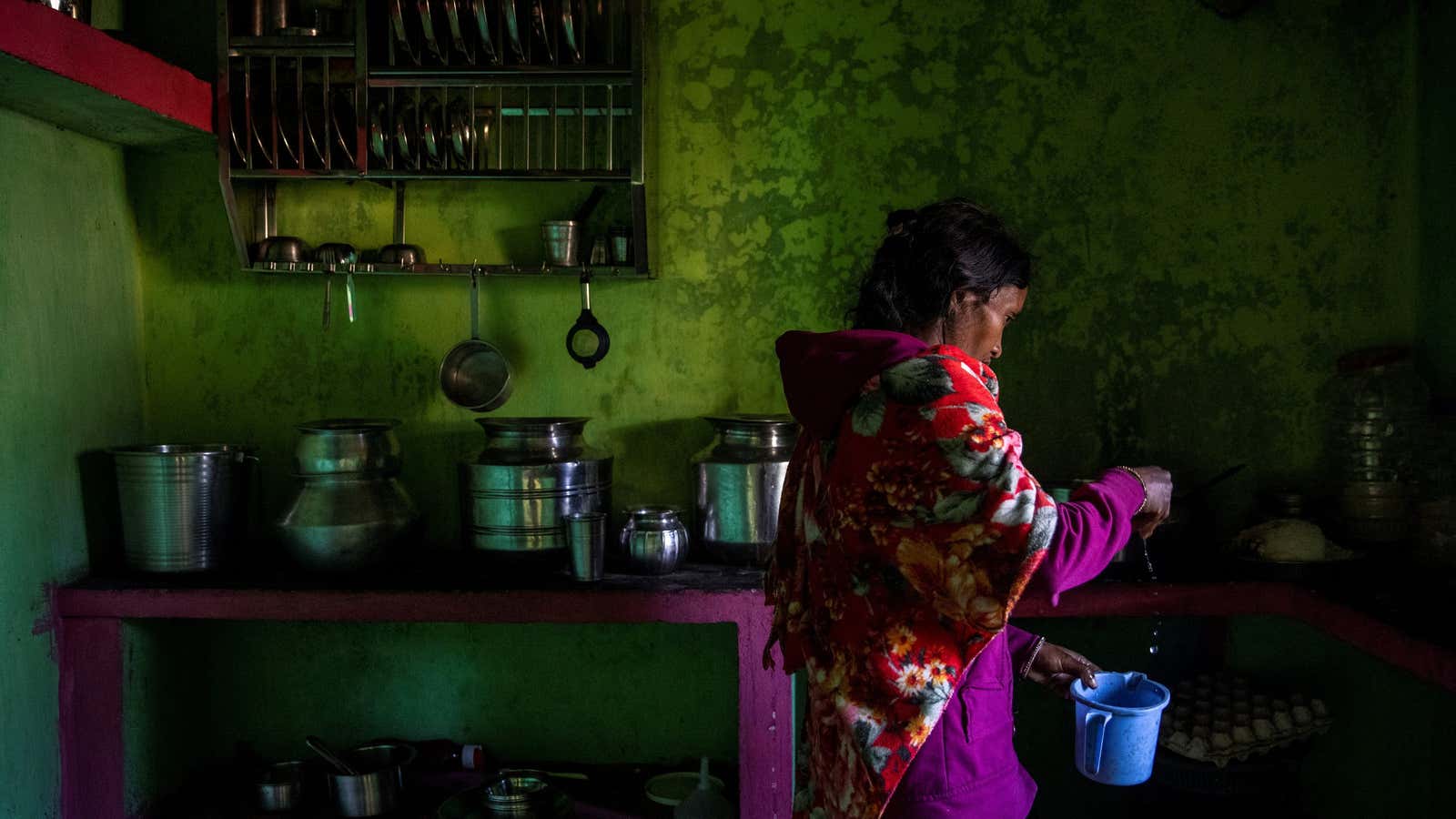Indians are worried about their finances, as per one economic parameter, at least.
Since the onset of the Covid-19 pandemic in India, households in the country have been saving more than they did before, reflecting a sense of conservation in anticipation of rainy days. These savings have gone up despite the fact that job losses and pay cuts have been on the rise.
Indian households’ savings—including cash, bank deposits, and investments—remained higher than 13% of GDP (pdf) for the most part of fiscal 2021, as compared to around 11% in fiscal 2019 and fiscal 2020, each. During April-June 2020, the number had risen to as much as 23% as India was under one of the strictest lockdowns in the world and most people were locked indoors.
“The lockdown closed most of the avenues for spending and even after the lockdown was lifted a heightened uncertainty resulted in households’ behaviour drifting towards conservation of cash or income to meet unforeseen events,” said Sunil Kumar Sinha, principal economist at India Ratings and Research.
As the second wave of Covid-19 threatens to cause more job losses and pay cuts, experts believe that Indians will continue to save more. This will also be because the devastation caused by this wave is way more and the fear of the disease is much higher.
The second Covid-19 wave will fuel more savings
India navigated the first wave of Covid-19 with far more ease compared to several other countries. However, in the second wave, the country has broken world records both in terms of new infections and deaths. The country’s healthcare infrastructure is on its knees as hospitals and patients have struggled with an acute shortage of oxygen and medicines for over a month now.
“The underlying conditions have not changed and the uncertainty has increased. To add to that this time around people would be saving to meet the expenditure towards healthcare exigencies,” said Kavita Chacko, senior economist at CARE Ratings.
Indian scientists have now warned of a third wave hitting the country by October this year. This would mean that households will remain wary and clutch their purse strings tightly until a decisive victory is achieved on the Covid-19 front, Sinha of India Ratings said.
While higher bank balance could comfort households, these savings don’t bode well for the Indian economy as private consumption accounts for around 60% of India’s GDP. So, if people spend less, the revenues of companies will remain under pressure.
It seems then that if the Indian government wants to bring its economy back on track, it first needs to tackle Covid-19 more affective.
